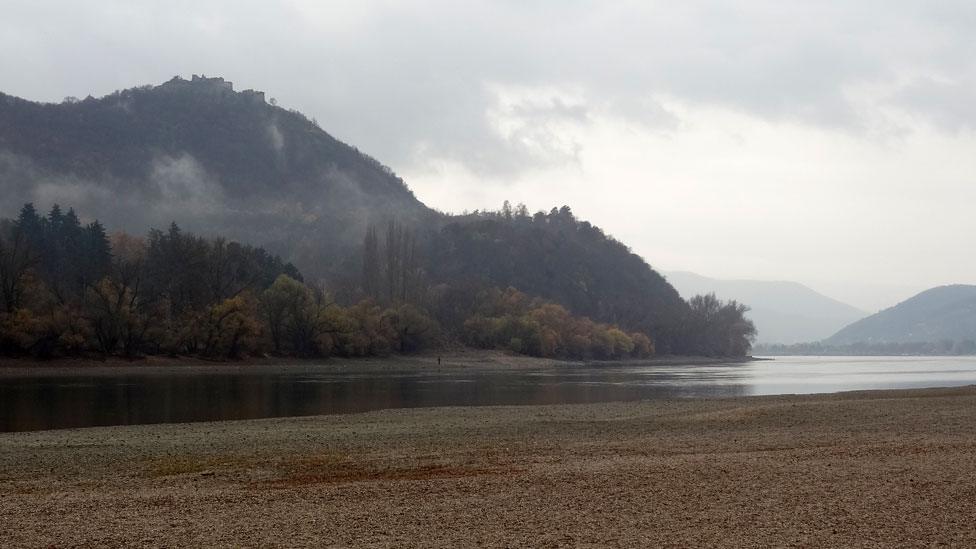Migrant crisis: Macedonia border closure strands thousands in Greece
- Published
Many Afghans at the Greek-Macedonia border broke through the fence
Thousands of migrants and refugees have been stranded near Athens and on Greece's northern border after Macedonia stopped allowing Afghans in.
More than 5,000 people were stuck at or near the border and at one point several tried to storm the fence. Four thousand more arrived by sea from the Aegean islands at Piraeus port.
Macedonia said on Sunday it was following other governments by allowing in only Syrians and Iraqis.
Greece protested against the decision.
After Syrians, Afghans made up the second largest number of people seeking asylum in the EU in 2015, according to official figures, external.
The Macedonian move came three days after Austria imposed a daily limit of 80 asylum claims on its southern border.

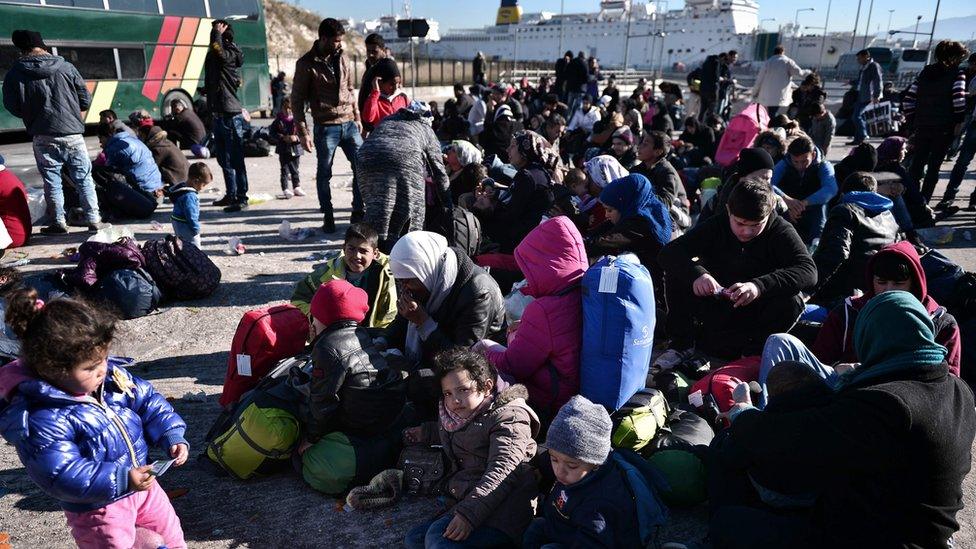
More than 4,000 refugees and migrants arrived at the port of Piraeus on Monday from Lesbos and Chios
Although EU officials said the Austrian limit was incompatible with human rights conventions, Balkan states along the migrant route from Greece responded by implementing their own restrictions.
In the past year, the vast majority of migrants and refugees arriving in Europe have taken the route through Greece, in the hope of claiming asylum in Germany or other EU countries. More than 1.1 million people arrived in Germany alone in 2015.
EU police agency Europol said on Monday, external that 90% of them had used a "facilitation service", offered mainly by criminal smuggling groups.
Barbed wire
More than 5,000 people had gathered by Monday morning at the Idomeni crossing or on buses a few miles away.
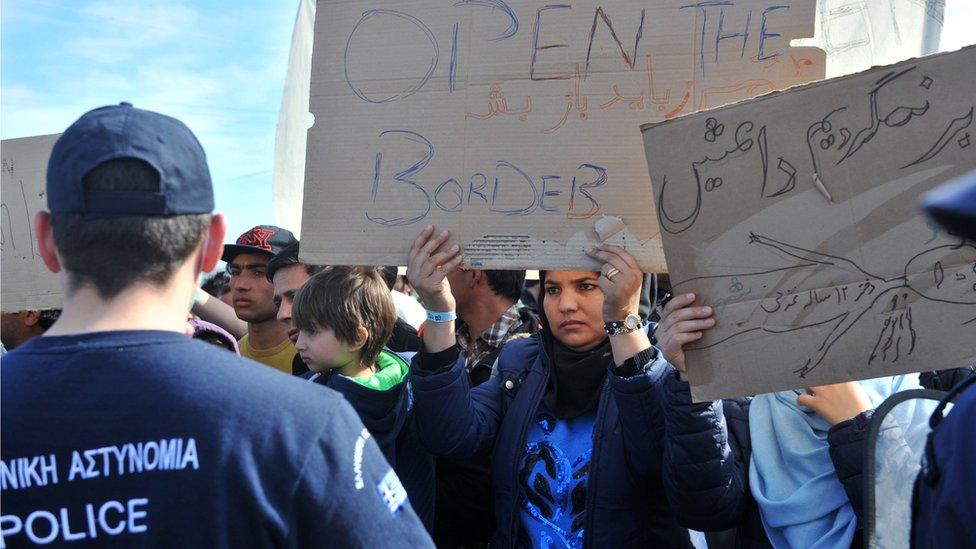
Afghans at Idomeni demanded that they be allowed across the border
Some 600 Afghans staged a protest, holding up banners that read "Open the border", but then a crowd broke through a Greek cordon and gathered at the fence.
Many protesters stormed the fence and sat on a railway line in no-man's land. Several climbed through barbed wire before being arrested.
Greece's junior immigration minister said he was hopeful the issue would soon be resolved with Macedonia. The Athens government fears the new restrictions will prompt a build-up of migrants and refugees on its territory.
The first indication of that came with the arrival on Monday of four ships in the port of Piraeus carrying more than 4,000 migrants. They were intending to continue their journey to the Macedonian border at Idomeni.
Last November, Slovenia and other Balkan countries announced they would only allow in refugees from Syria, Iraq and Afghanistan, where armed conflicts were taking place.
Macedonia said it was now halting access to Afghans as well, because Serbia had itself imposed restrictions, although that was disputed by the Belgrade government.
The BBC's Richard Galpin: ''Another line of razor wire aimed at preventing thousands of migrants crossing illegally into Macedonia''
Police from Austria and the Balkan states agreed new guidelines for letting in migrants last week, which reportedly include a photo-document issued by the authorities on the Macedonian border with Greece.
The UN has already counted more than 94,000 arrivals from Turkey on Greece's Aegean islands since the start of this year. However, the EU's Frontex border agency said , externalthe numbers in January were 40% lower than the previous month, largely because of poor weather.

German politicians have reacted with dismay to the change in Austrian policy, which includes a 3,200 daily limit on the number of migrants and refugees being allowed transit through the country.
Interior Minister Thomas de Maiziere complained the number was far too high and sent the wrong signal.
"If others think that they will dump a greater burden on Germany, we won't accept that in the long term," he said.
His opposite number in Austria, Johanna Mikl-Leitner, complained that Germany was sending mixed signals.
Germany could not promise Greece that it would continue pursuing its open-border policy while also demanding that Austria stop everyone coming through, she argued.
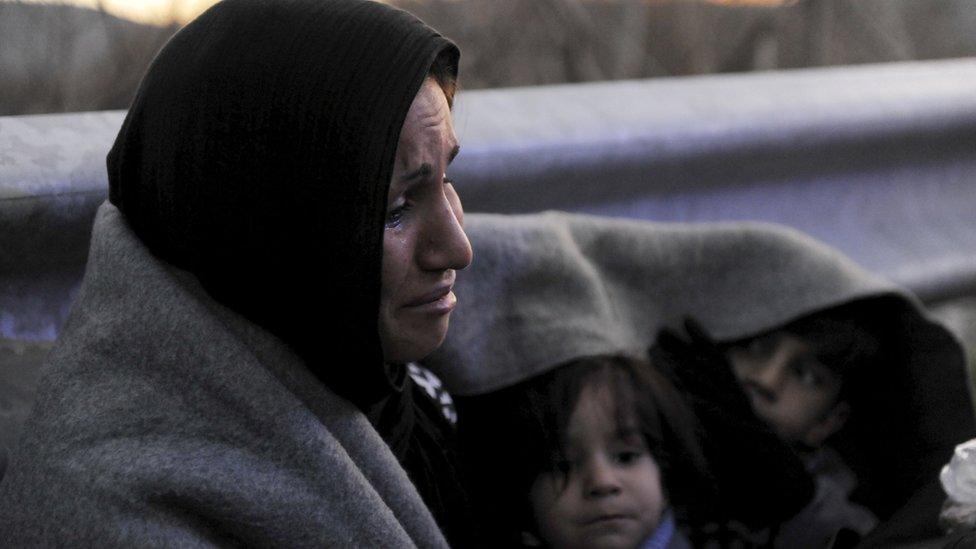
Police in Austria and the Balkans have agreed new guidelines for letting migrants into Macedonia
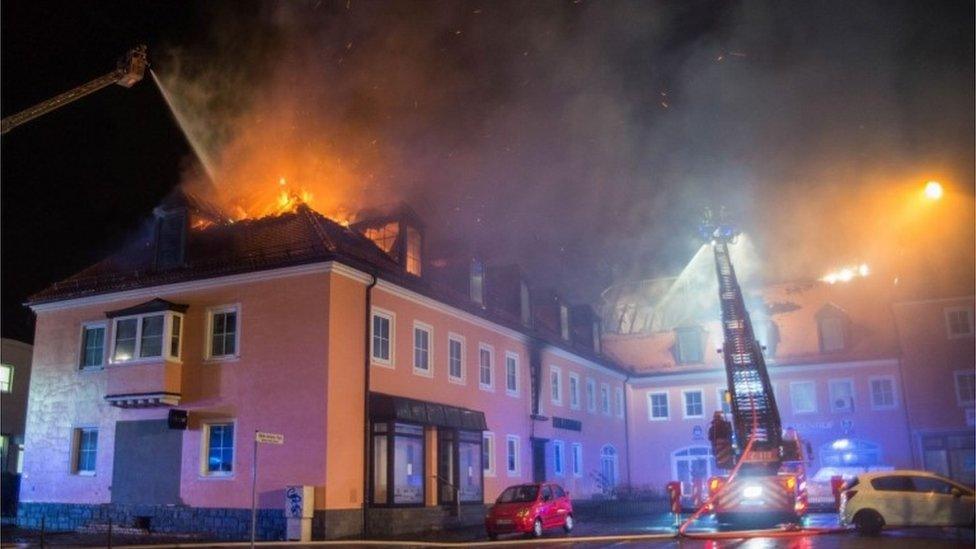
Onlookers at the fire in Bautzen jeered, according to the police
Germans have been shocked in recent days by two anti-refugee protests in the eastern state of Saxony.
Dozens of protesters blocked a bus carrying families to a shelter in the town of Clausnitz on Thursday night, hurling abuse and chanting "we are the people".
Two nights later, a shelter for asylum-seekers was set alight in Bautzen as onlookers were filmed applauding the action.
Government spokesman Steffen Seibert condemned the Clausnitz attack as cold-hearted and deeply shameful.
A note on terminology: The BBC uses the term migrant to refer to all people on the move who have yet to complete the legal process of claiming asylum. This group includes people fleeing war-torn countries such as Syria, who are likely to be granted refugee status, as well as people who are seeking jobs and better lives, who governments are likely to rule are economic migrants.
- Published12 February 2016
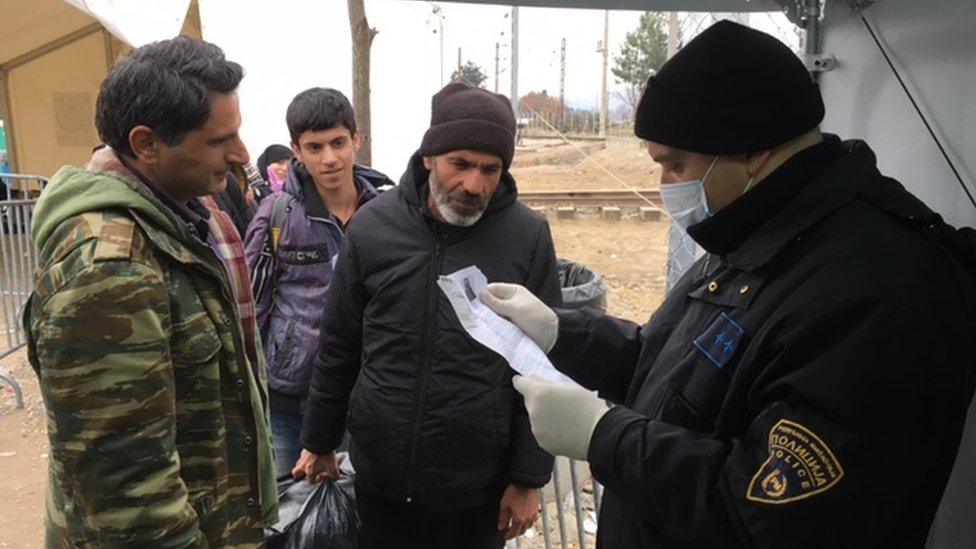
- Published21 February 2016
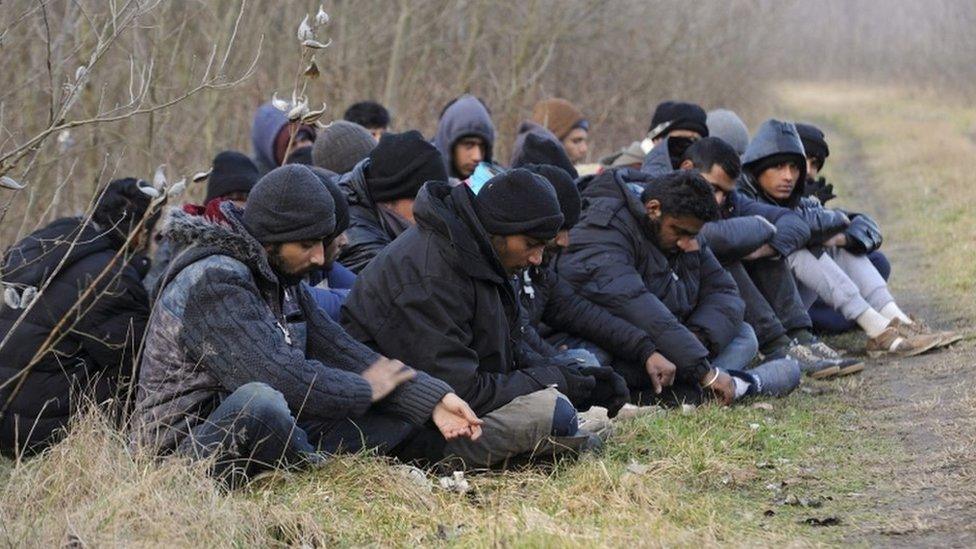
- Published14 January 2016
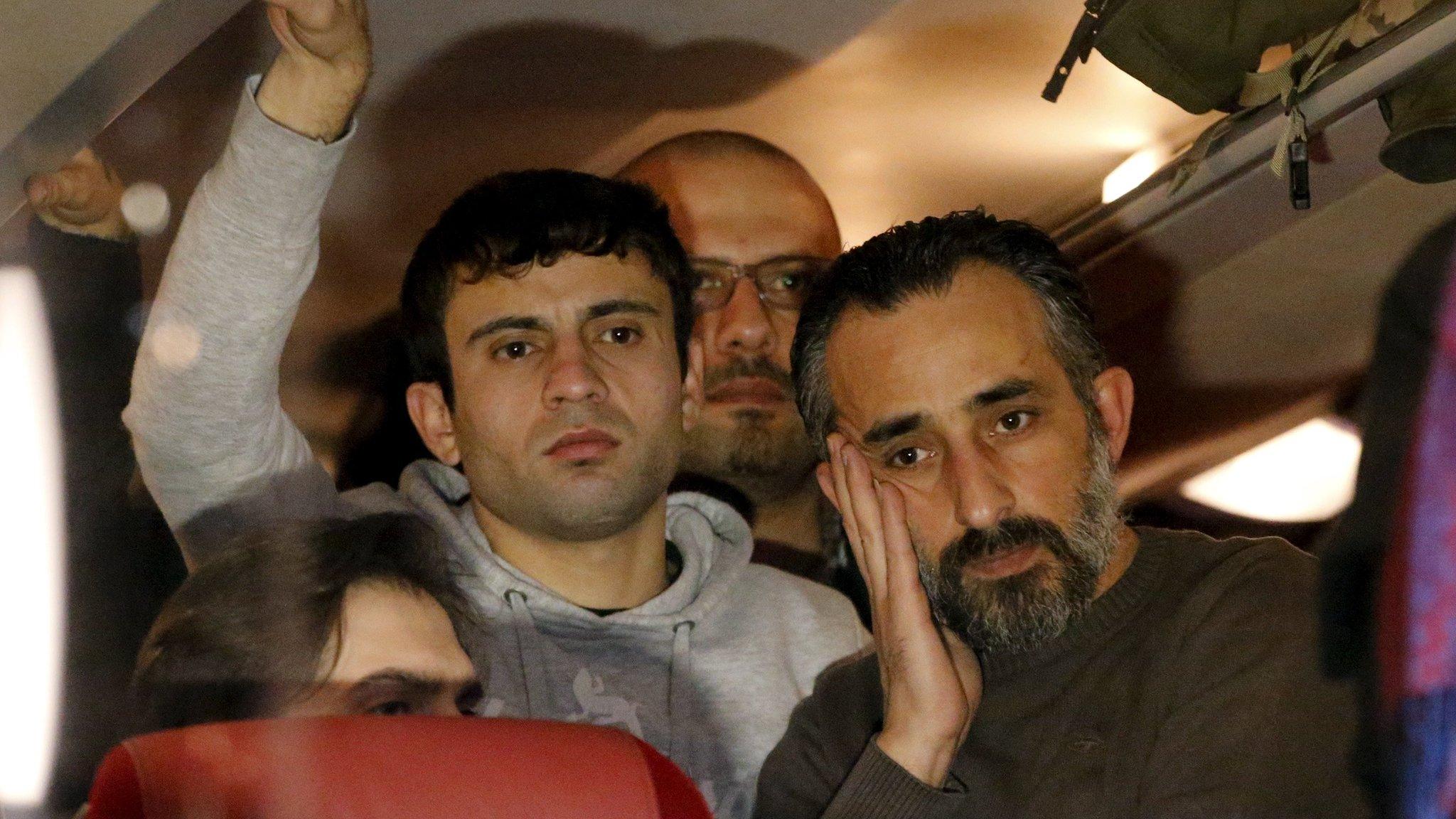
- Published21 February 2016
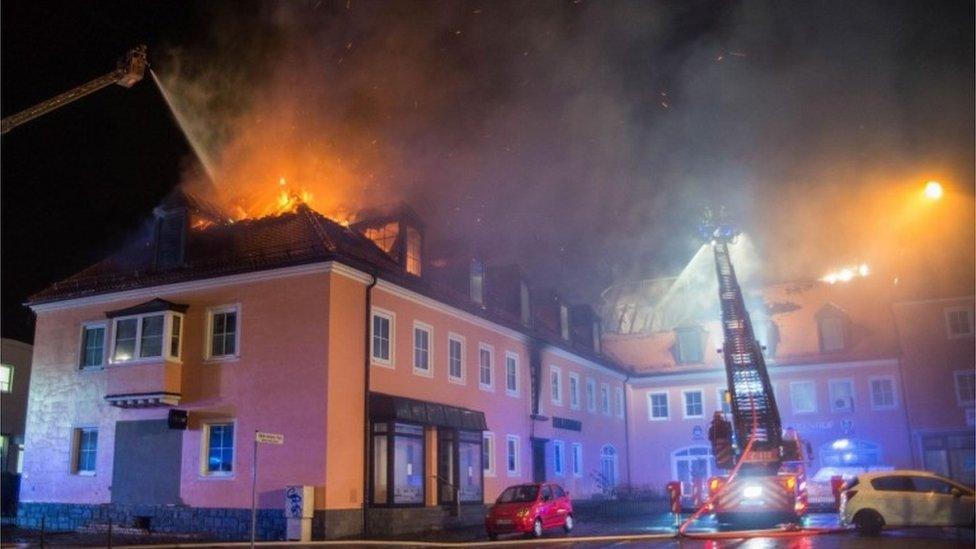
- Published21 February 2016
